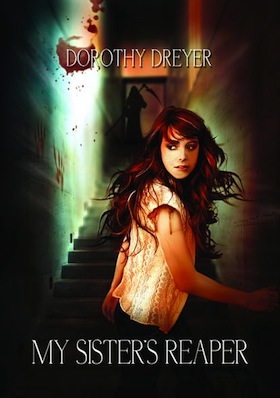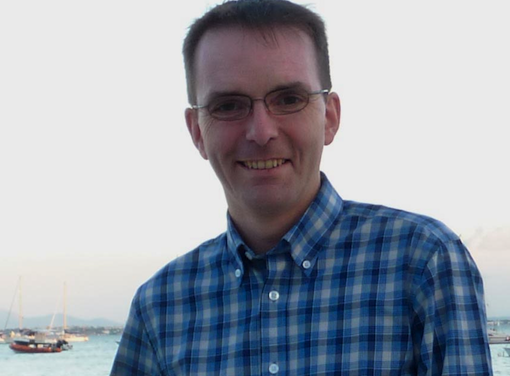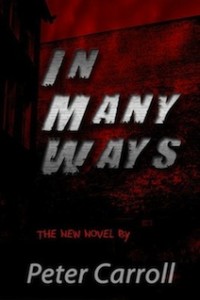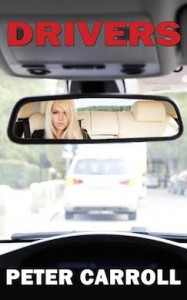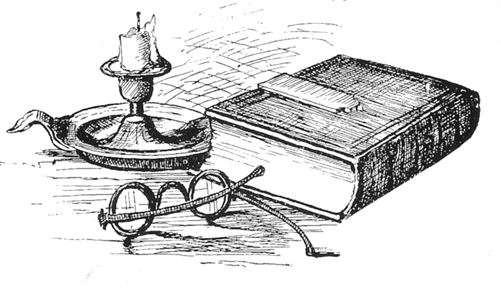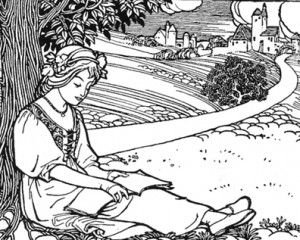
Brenda Sorrels is a writer who grew up in Fargo, ND and attended Manhattanville College in Purchase, NY. She now lives in Dallas with her family, including small dog, Charlotte – and spends summers writing in Connecticut.
Time to chat with Brenda!
What is your latest book?
The Bachelor Farmers, an historical love story set in Northern Minnesota in the winter of 1919.
Is your recent book a part of a series?
No, it’s not part of a series, but there will be a sequel.
If you were to advertise your book on a bumper sticker, what would it say?
The Bachelor Farmers – a love story to fall in love with!
What else have you written?
I’ve been writing short stories for many years, but this is my first published novel.
What do you think some of the greatest misconceptions about indie authors are?
I think the biggest misconception is that the quality of the writing is not up to the level of traditionally published writers. This is changing fast. Many Indie writers, (just like all writers) are working very hard to become better at their craft. They’re having their work professionally edited, and are serious about taking it to the next level. In a way I think Indie writers are harder workers because they almost always must do everything themselves…this includes writing intros, synopses, bios, inside covers, back-of-book content, questions for discussion – you name it. Plus, they must promote themselves with very little help.
How often do your characters surprise you by doing or saying something totally unexpected?
Great question. This happened a few times in The Bachelor Farmers which was a big part of how the story developed. I don’t want to give away the plot, but when I was certain one of the characters would not act a certain way, I switched the action to his brother and it became a huge twist in the story. I try to think out my characters ahead of time, but as you write they develop and sometimes go in directions you could not possibly have imagined. It’s one of the things I enjoy most about writing which leads into your next question:
What part of writing a novel do you enjoy most? The Least?
The character development is definitely one of the most enjoyable parts of writing for me. There are always surprises around the corner! You have the story line going one way and then suddenly you realize that one of your characters would never do that…so you have to adjust and make some changes. They end up going in another direction which causes other things to happen.
I also really love the beginning when you have an idea and you must flesh it out. I usually do an outline first, then write a short story. If there’s enough there, and I love it, I will think about expanding it. Right now I have several short stories that I think would make wonderful novels.
I love all of it really, but if I had to pick something I enjoyed the least it would be spending a lot of time writing a scene or say, an ending and realizing it doesn’t work, then having to scratch it and start all over again. It’s a lot of work and very time-consuming!
Is it important to know the ending of a book before you write it? The title?
I believe this is different for every writer or maybe I should say may be different for every book. For The Bachelor Farmers, I had the title in my mind well ahead of time. I just liked it and it triggered the story for me, though there was a lot of discussion in the end. Some people in my inner circle thought it could have been misleading, that people would associate it with old men in overalls, rather than young, hunky Norwegian brothers! I love the title and am glad I hung in there and kept it. The ending was changed a few times. I remember at one point having the entire book, but no ending. It took a few months to iron that out. Like I said before, I wrote a couple of endings before I was happy.

For my upcoming book, The Way Back ‘Round, I had no title for awhile and then my editor came up with it and I knew it was perfect.
Some writers edit excessively as they write; others wait until a novel is finished to do the bulk of the editing. How about you?
I work with my editor during the entire process of writing, so I would say I edit excessively as I write. I will do a first draft and when I’m ready I’ll give it to Margaret Doud, my friend and editor. She’ll read it and give me notes. I’ll redo it, add scenes, expand, change things, etc. on and on. We go back and forth like this until the changes we’re handing off fade away. You could actually fiddle with a book forever. At some point you must declare it “finished” and move on. It takes many months and rewrites to get to that point.
Do you have any advice for first-time authors?
I wrote a small article for my blog which anyone can read on my website called How I Wrote a Book. Here are some of the highlights: Start thinking of yourself as a writer, create a sacred space, write every day, take a writing class, write a messy first draft, try a short story first, find an editor, find a publisher. All of these things are important. You must think you’re a writer to become one…that’s key. After that, find the discipline to sit down and get the words on paper…if you can get this far I would also add…don’t send your work out too early. This is a huge mistake that most of us have made. You must edit and rewrite and edit and rewrite. Most of the work is really in the rewrite. I would also caution new writers to be careful who they share their work with. When you’re first starting out, you’re very fragile and almost no one hits a home run the first time to bat. Find someone you can work with who believes in your work. Be gentle with yourself and have patience!
Please, tell us about your experiences with social media. What are your favorite and least favorite parts of it?
I have had a lot to learn with social media. I didn’t realize how time consuming it would be and how much work it is to keep up with it. Because I am in the middle of writing another book I’ve had to make some serious choices about how much time I devote to social media. I decided to cut back quite a bit because I wanted to get back to my writing. This is one of the problems with being an indie writer!
I understand now that social media really is about building relationships and interacting with people. Right now I devote my time to Facebook, my book page there, my blog, my reading group on Shelfari and reviews I do for Goodreads, guest blogs and interviews like this one. I also do some Twitter and Linkedin.
Favorite part is meeting wonderful people. Least favorite is the time it takes!
What do you like best about the books you read? What do you like least?
I like books best when they are well written, portray characters with dimension and have interesting plots. I love it when characters are developed as much as possible. I just read an interview with the creator of Downton Abbey and he said he thinks a big part of the show’s success is that even the minor characters are fully fleshed out. If you watch that series you’ll see it is true! I also love books that have a strong sense of place which I think is very true for The Bachelor Farmers. A story that engages all of the senses as much as possible. I like books where things happen.
I dislike bad writing, but I might excuse it (a bit) if the story itself is really good. I don’t like a lot of gratuitous anything… violence, bad language etc. I am really sensitive to anything regarding animals and hate cruelty, even a little. I didn’t enjoy the book Like Water For Elephants because of this reason. I don’t read a lot of fantasy or sci-fi, though I know some of it can be really good and a lot of fun. I don’t like stories that take place in someone’s mind or are too psychological. I prefer stories to be a little more concrete. I also don’t like books that are too stylistic, where the writer is trying too hard with the language.
How much research was involved in writing your book? How did you go about it?
I’d been writing a lot of short stories and I had it in my mind that I wanted to make one of them a love story that would be set in very beautiful place. A sense of place to me is important and is a huge part of this book. I have a large extended family and on my mother’s side (15 kids in her family) I had two uncles that were ranch hands, farmers, who never married. The concept stuck with me because it was so odd. When we think of farms we always think of families. When we think of bachelor farmers we think of old guys in overalls, but I wanted to make these bachelor farmers young and hunky – which I did. Ironically, these boys love horses and horses ended up playing a significant role in the story, especially at the end. Many Norwegians settled in ND and MN and so I thought of Northern Minnesota, and I began to research that area. I did a lot of research on line, but I also found the Voices of America books on ND, MN, Pioneer Women, Cass County and several others were great. A River Runs Through It, by Norman Maclean was one of my favorites for the ambiance and feel of the forest, etc. The Haymakers by Steven Hoffbeck, Spirit of the North and The Lonely Land by Sigurd Olson, Tales of Spirit Mountain by Anne Crooks. I also read countless articles on how the land up north was settled, who lived there and what happened. The Native Americans at the time, the Ojibwa, were in and amongst the Swedes, Norwegians, Finns, Danes, and French Traders – and the logging business was thriving. All of this played into the story. Mahal, a beautiful half-Ojibwa woman is hired as the brothers’ cook when her abusive husband is injured in a logging accident.
Is there a question I haven’t asked you that you would like to answer? If so, what is it?
Yes, what is my new book about?
The Way Back ‘Round is a story of family and friendship, of a boy who makes an innocent, but terrible choice that haunts him for the rest of his life.
The story begins in the summer of 1937, rural Minnesota, when twelve-year-old Jake Frye breaks a promise to his parents that results in a tragedy that shatters his close-knit family. Unable to face his guilt, Jake hops a freight train joining thousands of other depression-era men and boys riding the rails. Fate brings him together with another boy named Franz and they form a friendship as close as brothers.
As they journey through “jungle” camps pitched along the routes to picking fruit in California, cotton in Texas, a Roosevelt Conservation Corps Camp for itinerant men and WWII – they face the ultimate challenge. Will they survive the cold hungry life on the road or be killed by one of the brutal “Bulls” who patrol the tracks? Will Franz ever marry the red-headed girl he dreams about? Will Jake ever see his family again?
As challenges are met, Jake learns what it takes to survive in an unfair world, what it means to forgive and ultimately what it means to love. Themes of friendship and family, loss and guilt weave through the story and reinforce the truth that our lives are shaped by the choices we make.
Do you allow others to read your work in progress, or do you keep it a secret until you’ve finished your first draft? Can you elaborate?
As I mentioned before I work very closely with my editor through the entire process. I also have a group of what I call my “Core Readers.” These are very smart, literary friends who like to read and will give me their feedback. I give different people different drafts at different times. It all depends on how I’m feeling or what I want to know.
Have you received reactions/feedback to your work that has surprised you? In what way?
Yes, some of the reactions and feedback has surprised me. I was surprised at how people got attached to certain characters and why. Some people mentioned the sadness and their feelings for different things that happened. It surprised me because I hadn’t given much thought to people’s reactions, etc. I just wrote the story that was inside of me. I imagine I’ll have many more surprises down the line.
Do you write anything besides novels? Care to share?
I write a lot of short stories as I’ve mentioned. I also write a blog every month and post it on my website.
Were you “born to write” or did you discover your passion for writing later in life?
I have always loved writing though as a child it was letter writing, journaling, pen pals, etc. I developed a real love for it in college but didn’t start taking workshops until years later when I was married. I got really serious around eight years ago and have been going strong ever since.
Do you dread writing a synopsis for your novel as much as most writers do? Do you think writing a synopsis is inherently evil? Why?
I will admit that it’s not one of my favorite things to do. It’s one of the most difficult things to write, but I also think it is invaluable in helping a writer articulate to other people what their book is about.
If you were to write a non-fiction book, what might it be about?
This is amazing because I was just thinking about this the other day. I would like to write a book on what it takes to be a good step-mom. I’ve been married for 13 years and have two wonderful stepdaughters. I’d like to share my experience. Most of the times stepmoms get a bad rap and I’d like to write a book about how being a stepmom can be a rich and rewarding experience.
Do you have any advice to a new author if they asked you whether to pursue the traditional route to publishing or to start out as an independent writer?
I believe that this really depends on the writer. If you have the time and patience to pursue the traditional route, it’s probably worth giving it a try. It would be wonderful to have help with promotion, publicity, etc. though for new writers, I’m told publishing companies don’t really do that much. It’s not an easy route either way, I think. Traditional publishing takes a lot of the writer’s income unless you land a huge book deal somewhere. Indie publishing is growing and you have more control over your destiny. If you go the traditional route you must find an agent (this could take forever!) They then, have to sell your book to the publisher (this could take forever) and then who knows when or if they will ever publish it. If you’re very young and have years and years before you, it could be worth it. If you’re impatient and want to do your own thing, there are so many choices now – it’s really quite wonderful.
What have you done to market your novel and what did you find the most effective? The least effective?
Another great question! I’ve done as much as I can via social media. I’ve tried all of it, Facebook, Twitter, Google+, Linkedin, Amazon Boards, Goodreads, Shelfari, Pinterest on and on. I wish I had time to do more. This is by far, the biggest challenge I am facing right now. Getting people to review the book, leave reviews on Amazon and other places, etc. has been the most important thing and I believe has helped me the most. I’ve decided to cut back and do the things I enjoy doing, because I need my time to keep writing. Right now Facebook is the biggest thing for me and I’ve been able to connect with some great people like you! I’ve gotten into Pinterest too and love it. I matched photographs with dialogue from the book, so it’s like looking at a small movie. Really fun! I think it helps to do interviews like this one and anything else that comes your way, book clubs, book fairs, etc. Anything at all to get the word out. All of these things present an enormous challenge to time management, so you have to pick and choose the ones you enjoy and the ones that will give you the biggest amount of momentum.
Do you feel your latest book is your personal favorite or one of your previous novels?
It is because this is my first published novel, but I’m also really excited about The Way Back ‘Round which I hope to have out within the next couple of months.
Having our work out there to be judged by strangers is often daunting for writers. Do you have any tips for handling a negative review?
Take what they say and if something rings true for you like – how to improve your writing, do it in the next book. Otherwise try not to think about it and move on…keep going. Understand that not everyone is going to like everything you write.
Many authors do giveaways; have you found them a successful way to promote your book?
Yes, I think giveaways are fantastic! I’ve done several and people love them. I would definitely recommend doing as many as you can handle.
Have you been involved with the Kindle Direct Program? If yes, do you believe it’s worthwhile?
I’ve never been involved with Kindle Direct.
Are you an early bird or night owl? And do you have any must haves like coffee, chocolates, wine, music or something else?
I do my best work at night. I’m not a morning person at all. I like to get up and get all of my errands out of the way for the day. Once I sit down at my desk I do not like to be disturbed and I can go until all hours of the night. That’s what I enjoy most about writing in Connecticut. It’s quiet and there are few disturbances. An afternoon cup of coffee or tea is nice and sometimes at night when I’m winding down, a glass of wine. I like to do a final read-through after a day’s work with a glass of wine. It makes me sleepy and when I’m done, I’m ready to head back for the night!
We all know the old saying; you can’t judge a book by its cover. This is true. However, how much importance do you place on your book cover design?
I place a huge amount of importance on the cover design. This is the first meeting people will have with your book. If they are not attracted to the cover, they may not even pick it up. I don’t think you can spend too much time designing the cover. I spent hours and days searching for the perfect photograph for my book cover. I love the cover and never tire of looking at the image. I’ve also had many people comment on how much they love the cover. I would say take your time…do all that you can do to make it perfect.
Every day brings forth new changes and shifts in the world of publishing. Any predictions about the future?
I think that indie publishing is going to keep moving into the mainstream and will continue to gain respect as more and more indie authors are discovered. I also think there will be more electronic reading…the trends that are happening now will continue. However, I also believe that there will always be a desire for real books. There is nothing like the feel of a real book in your hands. I love my Kindle but I also love my books…books warm up a room, they make you feel good, you can write in the margins and pick them up and turn them over, give them as gifts. There will always be people who feel like this. I think there will always be people who will gravitate to the small bookstores too. Some small bookstores will make it, others won’t…but I don’t believe they will ever die out altogether. At least I hope not!
How would you define your style of writing?
I am extremely visual and I think of my writing as descriptive with a lyrical quality to it.
A lot of authors are frustrated by readers who don’t understand how important reviews are. What would you say to a reader who doesn’t think his or her review matters?
For a reader who doesn’t think reviews are important, I would argue that many times it is one of the only tools that potential readers have to help them find a new book. Unless someone recommends it to you or you read about it somewhere, how are you going to find out about what a book is about? Reviews help the writer get the word out about their work, but it’s also extremely helpful to go to new readers to help them not waste time and money on something they will not like, etc. It helps readers as much as writers. As writers, we are going to have to keep emphasizing this to our friends and readers. If you want to help a writer, there is no better way than to leave them a good review on one of the social media sites.
Where do you live now? If you had to move to another city/state/country, where might that be?
I live in Dallas, Texas now but grew up in Fargo, North Dakota then headed east for college. After graduating from Manhattanville College in Purchase, NY, I worked in NYC as an editor for Mademoiselle Magazine. I moved to Wilton, Connecticut with my first husband and lived there most of my adult life. My first husband died suddenly at a young age, and I decided Los Angeles would be a great place to start anew. I ended up working for the Fox Broadcasting Company in National Media, where we promoted the shows that ran on the Fox Network. Movies and storytelling is what LA is all about, and it was here that my interest in writing really began to take shape. For the next five years, I took countless classes through the UCLA Extension program on storytelling, character development, script analysis, etc. However, I missed the change of seasons, my house, the beauty of Connecticut and eventually moved back east.
Eventually, I married Barry Sorrels, my college boyfriend (he went to Columbia University in NYC) and moved to Texas. I live in Dallas now with my husband and small dog, Charlotte. I have two step-daughters who are grown but are a big part of my life. I like to return to Wilton to write, especially over the summer months when it’s too hot in Texas. If I ever had to move again, it would be back to Connecticut I’m sure.
If you could add a room onto your current home, what would you put in it?
If I could add a dream room to my house I would add a very personal writing space, cozy but not too small either. I’d have floor to ceiling bookshelves with all of my favorite books…a couple large windows, a fireplace, a large desk, my favorite pictures hanging on the walls…a special spot for my small dog, Charlotte.
What are three things you think we can all do to make the world a better place?
I think we could make the world a better place if we all slowed down a bit. Everyone I know, including myself, is always short on time or rushing to get somewhere or do something. Our culture could take a few lessons from the Europeans…longer vacations, more time off for family, etc. If we slowed the pace I think we’d become more tolerant of one another. We’d be more likely to know who our neighbors are and to get involved if they need help. On the other hand I also believe that people are basically good and in some ways things are better than they used to be. There is a lot more opportunity out there for writers and anyone willing to work hard to make their dreams a reality.
I think the world would be a better place if we went back to some of the core values of our grandparents’ era. Less materialism and more emphasis on what’s really important in life, like the intangibles…time spent with a loved one, caring for a pet, growing a garden, picking flowers, reading a child a book, saying a prayer now and then…all of the lessons that come from the countless things in our everyday lives that we take for granted.
I think the world would be a better place if every person lived consciously, (In fact, I just wrote a blog about this very subject!) if they thought about their own imprint on the planet and what it means for themselves and other people. I think more people would take the time to recycle and show concern for environmental issues – the quality of our air, the state of our oceans, forests, the animals and other people around the world. The good news is that there are a lot of people out there who are thinking about the way they live and getting more involved in their communities, etc. If everyone did their part, it would make a huge difference.
CONNECT WITH BRENDA
Amazon
Barnes & Noble
Website
Facebook
Twitter


